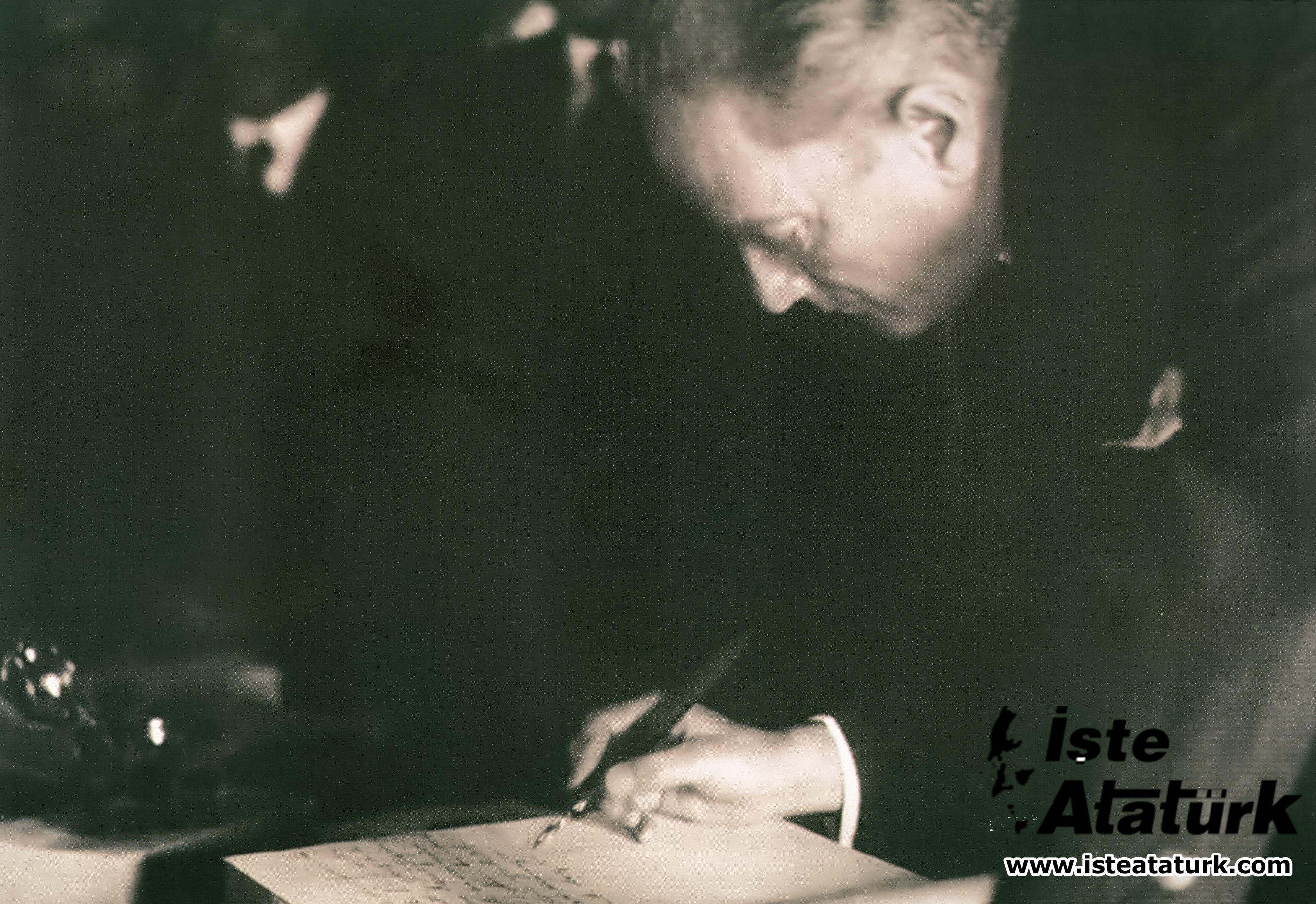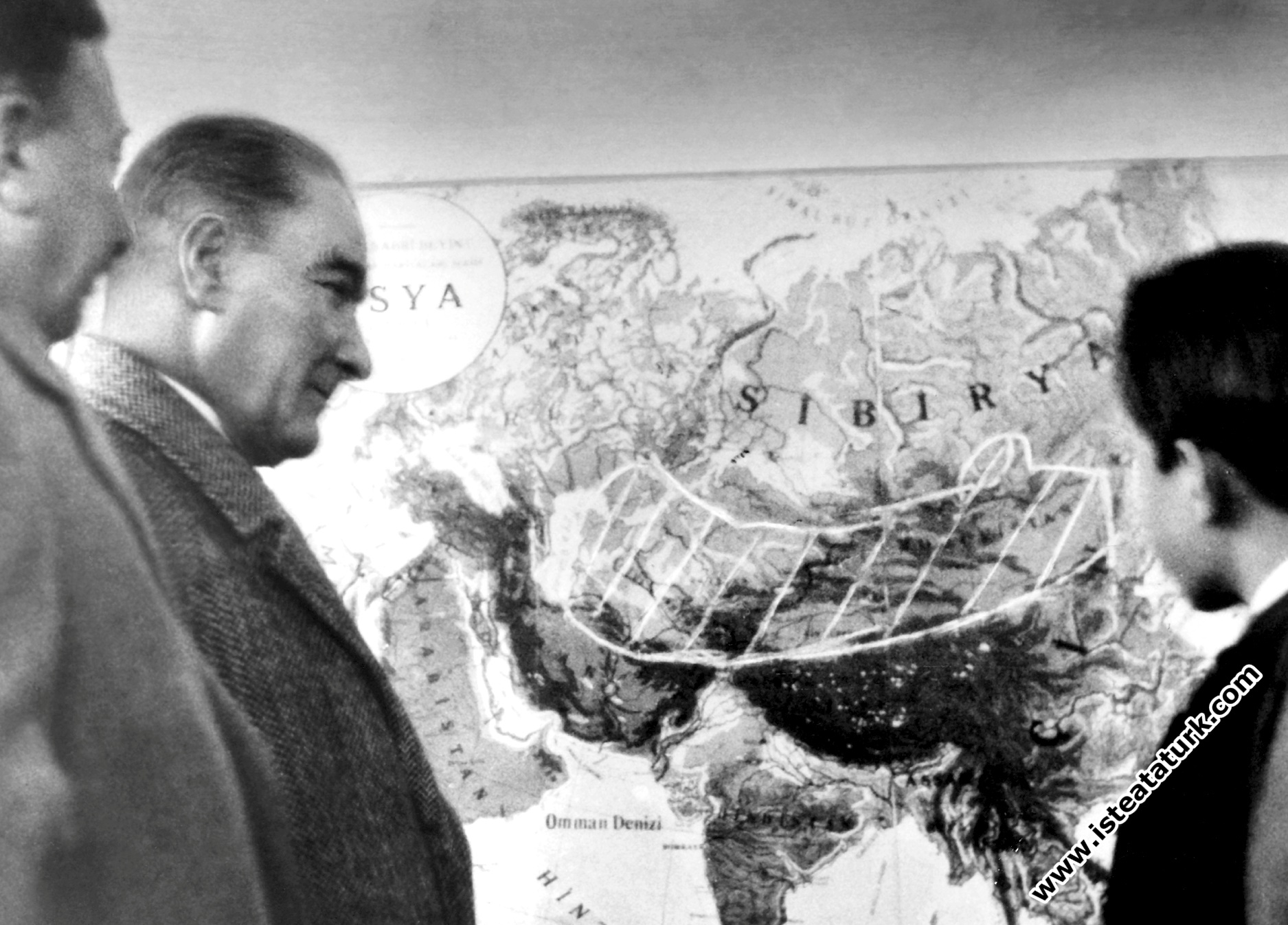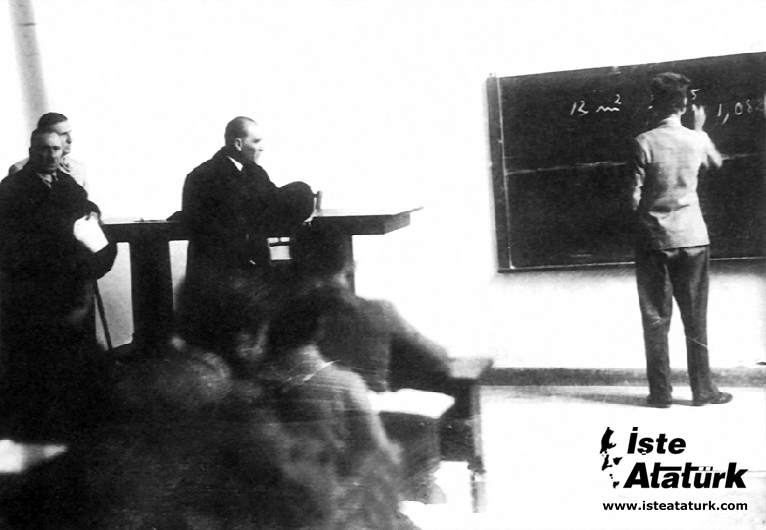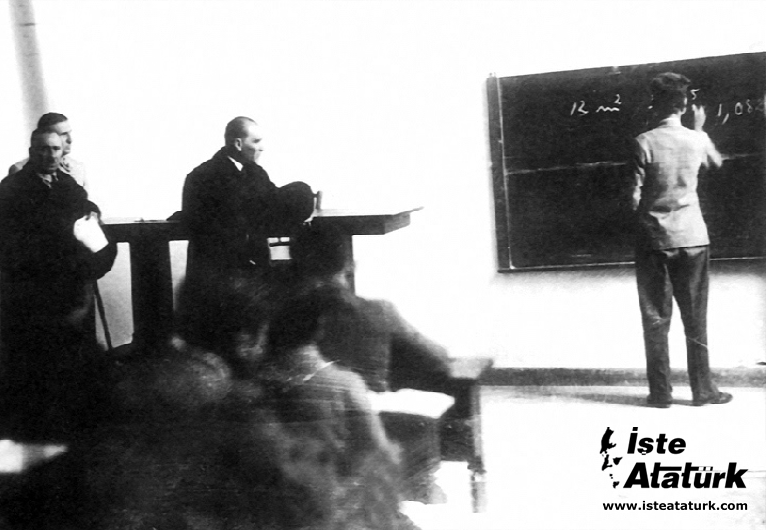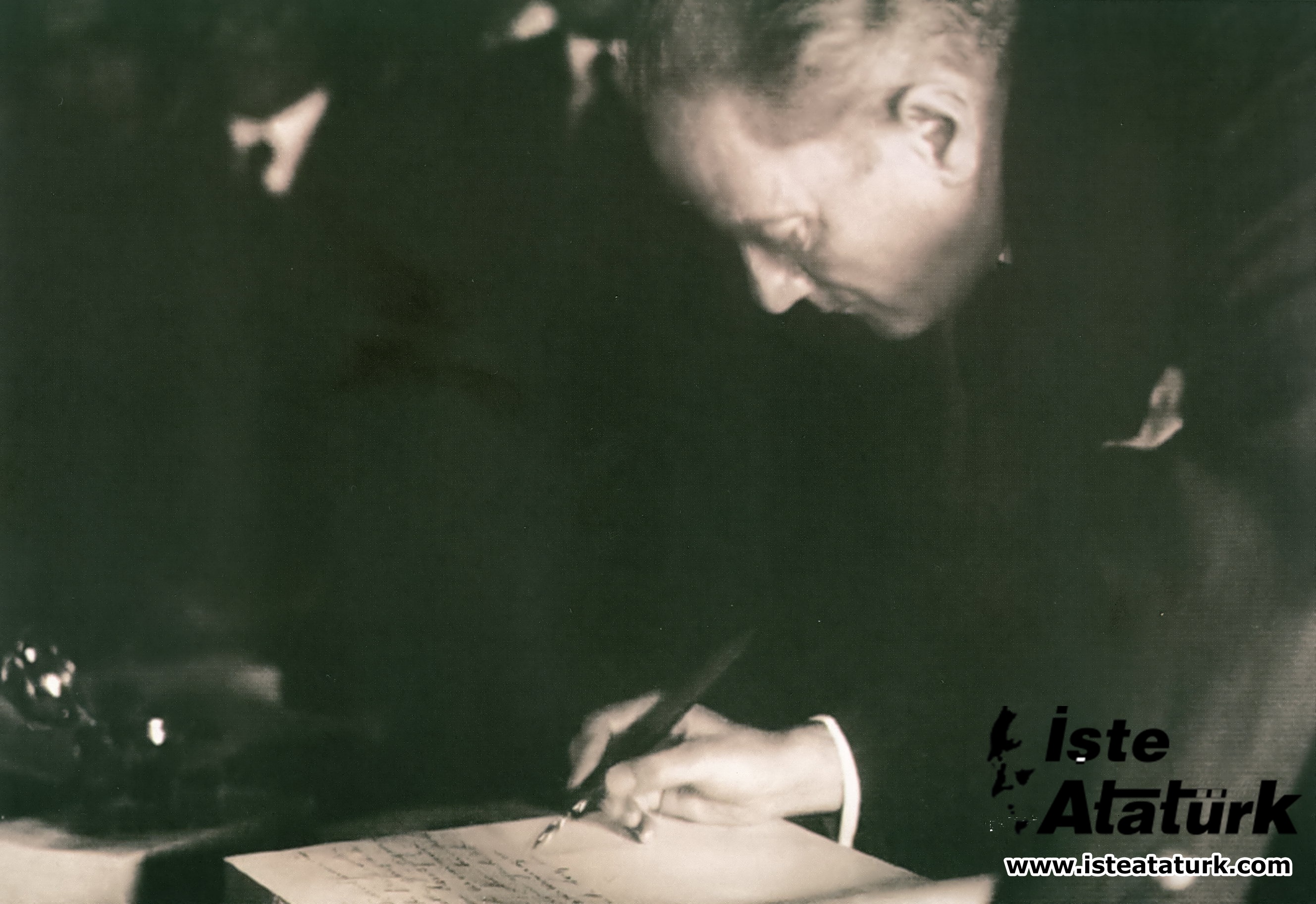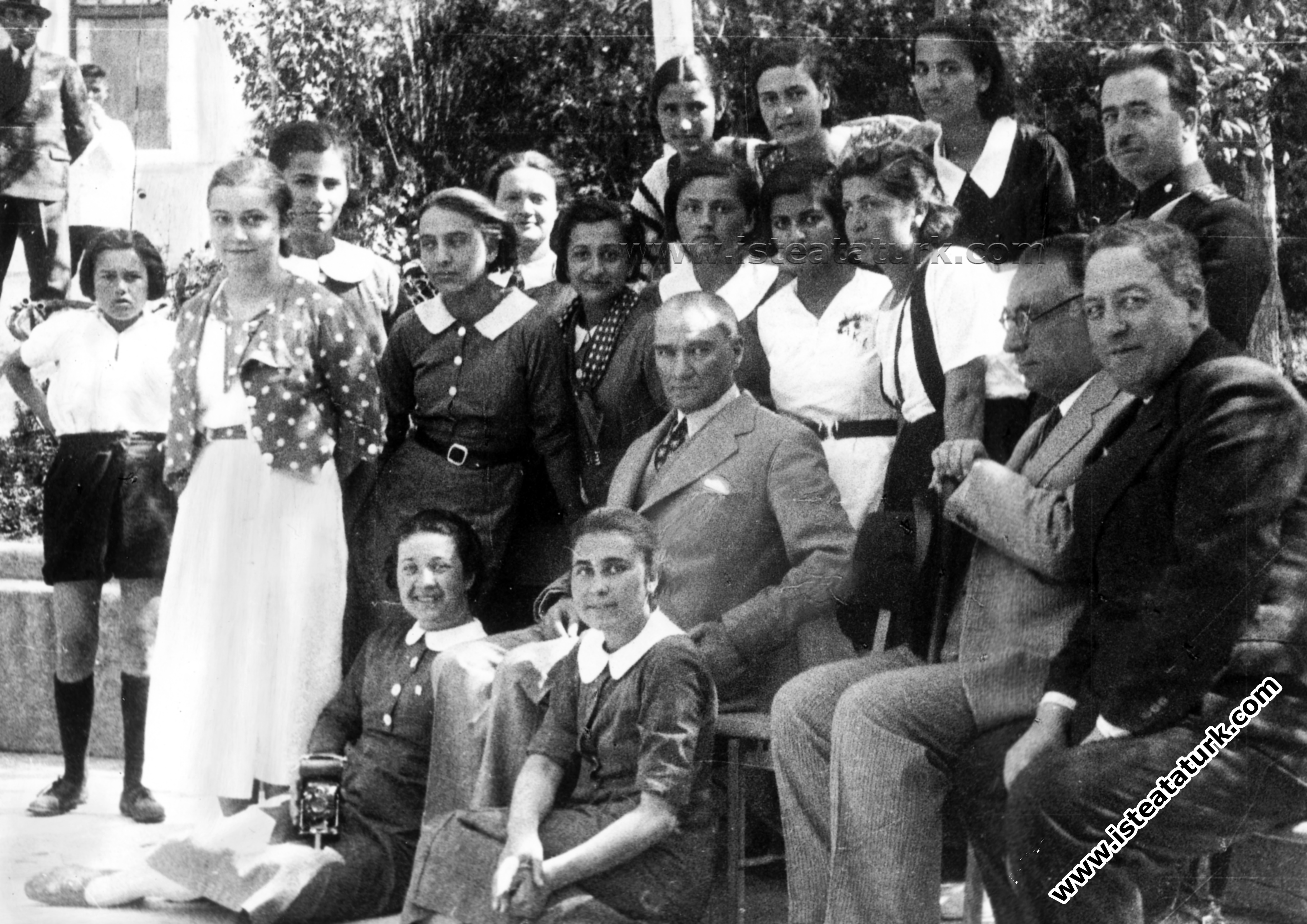
Atatürk's Brought to the Field of Law
Character Size
“If there is success and beauty in the laws of the Republic, it does not belong to me, but directly to Gazi Mustafa Kemal Pasha, the great leader of the Turkish Revolution. It is with the material and spiritual inspiration and inspiration I received from the great leader that I prepared these laws." Mustafa Kemal Ataturk
ATATÜRK'S BRINGS IN THE FIELD OF LAW
Civil Code:
Mecelle, which was prepared as sixteen books in ten years, was completed in 1878 by entering into long studies in the Ottoman Empire. Mecelle is the civil law that collects the provisions of the science of fiqh related to world affairs. The scattered pedestals are gathered together in this. Some of the provisions of the civil law are contained in the Mecelle. When the Nizamiye Courts were established alongside the Shariah courts, two types of courts, one religious and the other civil, began to operate in the country. This caused some confusion. Mecelle, on the other hand, was not sufficient in many respects.
Since the establishment of the Republic, many new laws have been adopted in the Republic of Turkey, and at the beginning of 1926, many bills, primarily the Civil Code, were being prepared. A letter of thanks was sent to the Minister of Justice Mahmut Esat by the President of the Istanbul Law Faculty Student Association for the preparation of the new laws. The Minister of Justice, on the wire he sent to the president of the society on February 6, 1926, stated that he prepared these laws with the inspiration of Gazi, and that if there is a success in the laws of the republic, the honor will belong to Gazi: “If there is success and beauty in the laws of the republic, It does not belong to me, but directly to Gazi Mustafa Kemal Pasha, the great leader of the Turkish Revolution. I have prepared these laws with the material and spiritual inspiration and inspiration I received from the great leader.
In fact, these laws are nothing but the expression and determination of the principles of revolution that our great leader preached (revealed). I feel a lot of joy (born) because I have served history by recording this truth, which my heart is not willing to keep hidden, right here. I kindly request you to accept my respect and convey my most sincere feelings to the young Turkish legal candidates (candidates) of the revolution, please mediate” 1 .
From here, this truth emerges above the water. The laws related to the revolution are prepared in line with the directives of Mustafa Kemal and the principles of the revolution. In this regard, there is a close cooperation between the Minister of Justice Mahmud Esat and Gazi. Before giving the directives regarding these laws, Gazi also gives enlightening speeches on these issues. Mustafa Kemal was emphasizing on the Turkish Civil Code, which would put forward the rights of women in the first place.
Women's rights have been a universal problem in the world for centuries. For a long time, women always came after men and remained in the background. Women never participated in the censuses made in the Ottomans.
The women's problem arose from the man's demeaning and humiliating view and understanding of women. In the Ottoman Empire, there were markets where women were bought and sold. The woman could be given as a gift as well as purchased. The institution of polygamy was sanctioned by Sharia. The woman's will was not in question in marriage. Divorce was by the will of the man. In inheritance and witnessing, the will and expression of the woman was half as much as that of the man. The woman was covered with veils and chadors and lived a cage life. Education was limited. She had not achieved the freedom to work in the economic field, she. One hundred and thirty years ago, the price of a slave was 60,000 kuruş. In 1848, slavery was officially abolished under pressure from foreign states. However, the purchase and sale of slaves continued in secret. As a matter of fact, in an official deed of 1864, we can determine that a ten-year-old Circassian girl was sold for four thousand kuruş.2 .
Mustafa Kemal is the only person who has dealt with the women's problem fully for the first time and succeeded in solving it. According to her, the social rights of the Turkish nation could not be realized unless the rights of women were recognized. According to him, our women fought as honorably as men in the war of national independence 3 .
In the National War of Independence, women also worked shoulder to shoulder alongside men, carrying bullets and carrying supplies to the front with oxcarts. By establishing associations, they made written and verbal protests to the Istanbul Government and the representatives of the Entente States, and held rallies. They put all their assets for the independence of Turkey. In fact, the necessary value was given to women in Turkish society during and before the Seljuks, and this method disappeared later on, and as women's freedom decreased, women remained in the background. Gazi believed that the time had come for Turkish women to assume the place and duty they deserve in society.
Mustafa Kemal began to give speeches emphasizing the importance of women in 1923. In his speech addressing the public in Izmir on January 31, 1923, he emphasized that women should be at the same level as men, women were never behind men, and that development would be realized together .. On March 21, 1923, at a meeting organized by the Konya Red Crescent Branch, she touched upon many issues in terms of women's rights and duties. In 1925, she gave speeches on this subject in İnebolu, Kastamonu and İzmit. In October 1925 (October 14, 1925), she asked questions to the students at İzmir Teacher's School for Girls and gave some of the answers herself. How should a Turkish woman be? After asking the question, she replied as follows: “The Turkish woman should be the most enlightened, virtuous and heaviest woman in the world. She should be a dignified woman, heavy in morality and virtue, not in heavyweight. The duty of Turkish women is to raise generations capable of protecting and defending with the Turkic mentality, armpits and determination. Here, I remind you of a sentence of the deceased Fikret (Of course, if he becomes miserable, a woman will be degraded)”5 .
It should be accepted that the reason why women's rights were accepted in later dates, not in the first years of the Republic, stemmed from the conservatism that had been ingrained in the minds of Ottoman society for centuries. In April 1923, there was a great reaction in the Assembly to the proposal to count women as a tradition, and a thought that did not consent to this census, let alone granting them political rights, dominated the Assembly.
However, there had been quite a bit of progress in women's rights since the Ottoman Empire. The drawbacks of Islamic Law were clearly revealed. According to Islamic law based on religion, although Muslims were forbidden to marry foreigners, marriages took place. On April 8, 1924, Gazi had the law on the organization of new courts abolished by abolishing the courts of law. However, even in secular courts, the rules of sharia continued to be applied. Because there were no new laws. At the beginning of 1924, the Minister of Justice had sought the reformation and readmission of the 1917 Family Law Decree, but Mustafa Kemal was not interested in a law based on sharia, however modernized it might be. He wanted the deep chasm between family feuds to be lifted. Substantially,6 .
A few weeks later, on September 11, 1924, a commission of twenty-six lawyers began work with the aim of implementing the Swiss Civil Code according to Turkish requirements. Members of the commission had studied at the University of Switzerland. At their head was the Minister of Justice Mahmut Esat Bey. The Commission examined Switzerland's Civil Code, as the French Code was obsolete and the German's was seen as incomplete and confused. The Ankara Government also decided to implement the Swiss Civil Code.
On 17 February 1926, the civil law draft from the prime minister's office and the Judicial Council Mandatory began to be discussed in the parliament. Minister of Justice Mahmut Esat Bey took the floor and explained that the draft law has been examined for a week, the law covers more than nine hundred articles, the most important parts of the civil law, especially the family organization, establishment, inheritance affairs and the same rights, and explained that Turkish women will gain their freedom with this law. . “According to my understanding of Turkish history, the most sad face is the Turkish woman. You will bring the Turkish mother, who is a woman herself, to the position she deserves, who has been swept to the ground like a piece of art by being held by her arm when requested, the family organization and inheritance decrees (provisions) of the new layiham (draft)...". Esat Bey, Deputy of Tokat, He asked that no article of the law be changed. After the other speakers, the law of 937 articles was accepted7 . The law, published on April 4, 1926, entered into force on October 4, 1926. On the same day, that is, October 4, both the debts and the Commercial Laws came into force.
With the adoption of the Civil Code, a great void was filled. As a natural result of the free and democratic structure brought by the 1924 Constitution, and with this law that complemented it, women gained important rights. The Civil Code is considered one of the most important laws enacted by the Turkish Grand National Assembly in terms of separating the new Turkey from the legal bases of the Ottoman Empire. Because the secular nature of the new state structure found a clearer and more precise expression in the justification of the Civil Code compared to other laws. Apart from the subject of sharia and the Mecelle, the Civil Code made important changes in the rights of women by making women equal with men in terms of family law, inheritance, and management of property. The obligation to marry more than one woman has been abolished. Women had a say in marriage and divorce. Even in universities, boys and girls lived separately in earlier times, but after the Republic they began to sit together. The girls began to work in various institutions. They had equal rights with men regarding inheritance. However, the Constitution did not yet grant women the right to vote and be elected. They gained the right to vote and be elected in municipal elections on April 30, 1930, and to be elected as a deputy on December 5, 1934, with the constitutional amendment.
After the adoption of the Civil Code on February 17, 1926, on June 14, 1926, the Ministry of Justice issued a regulation, arranging the chapters of engagement, marriage, divorce, and it was sent to the prosecutor's office and village councils of elders. These issues were also published in the newspapers. It was announced everywhere that the implementation of the Civil Code would begin on October 4, 1926 8 . Later, other laws started to be passed quickly by the parliament.
Turkish Penal Code:
As we mentioned before, a Penal Code was made and developed during the Tanzimat period. However, this was not enough. It was imperative that a new Penal Code be drafted... From what need the new Penal Code arose and what needs it would meet were detailed by Minister of Justice Mahmut Esat. Accordingly, the Turkish nation's rights and lawsuits did not have enough power to enforce the present Penal Code. The current Penal Code was made eighty years ago. This law of the reign period was made only to defend his personal interests and to protect his own situation. Therefore, it does not have the necessary enforcement power. Although some articles were added, a connection could not be established between them and the old articles and this law has lost its scientific value and quality for today.
Mahmut Esat Bey stated that this law, which was prepared by taking into account the state of the country and the latest developments in criminal science, in order to defend the expression and interests of the revolution and the republic, is very democratic, and that the most modern Italian Criminal Law was used while preparing it.
After the Civil Code adopted two weeks ago, the Turkish Penal Code came to the fore in the Parliament. The provisions of the Penal Code were very harsh. It was necessary for the revolutions to be like this for them to take hold. However, those who love the interests of the Turkish nation should not be afraid of this scientific law, Mahmut Esat Bey stated as follows: This Penal Code is a document of immunity for honest people.”
Later, Justice Commission Spokesperson Yusuf Kemal Bey and Zonguldak Deputy Tunalı Hilmi and Dersim Deputy Fikri Bey also talked about the law and the new Penal Code draft was voted, accepted on March 1, 1926 9, published on March 13, 1926 and published on July 1, 1926 . It entered into force in . Thus, one more step was taken towards the modern world with the Penal Code, which is a modern, scientific law that will defend the rights of the Republic of Turkey and ensure the implementation and implementation of the reforms, instead of the law defending the rights of the sultanate.
It was also time to regulate the rights of judges in Turkey, which had entered a modern order of progress. The courthouse, which would protect the rights of those who would ensure justice in the country, was not only a government institution, but also a state institution. In order to give the courthouse the security brought by the republic, it was necessary to ensure that it would proceed according to a certain program and to take scientific steps in this regard. First of all, the people who took on the task of distributing justice had to have scientific competence, secondly, that they should not be under any influence and influence, that their duties were reliable, that their advancement and advancement were tied to regular rules, and thirdly, that their independence was guaranteed by law. The scientific competence of these three aspects, namely the judges, The draft law covering the independence and the order of advancement in their duties was passed on March 3, 1926. On the same day, the Law on Forensic Medicine and the law on the extension of the Court of Cassation were also enacted. After the Law on Civil Servants and the Law on the Educational Organization on March 22, 1926, the Law of Obligations was enacted on April 22, 1926.
Code of Obligations:
The Code of Obligations was adopted on April 22, 1926 and entered into force after being published on May 8, 1926. In this regard, Mahmut Esat Bozkurt, in his speech to the parliament on April 22, declared that these laws had shattered the two tyrannical institutions of the Middle Ages such as the caliphate and the sultanate, and that they acted on the right when they came out quickly. Regarding the law, Konya Deputy Refik Bey and Zondulgak Deputy Tunalı Hilmi made speeches. The Swiss Code of Obligations was an important complement to the Civil Code 10 . Later, this law was published in the newspapers and announced to the public 11 . On April 24, a law was enacted on the suppression of school books by national education.
Thus, the Republic of Turkey, which was issued in the judicial field, began to be governed in accordance with contemporary methods. Now, the rights and laws of individuals have been determined, and the Turkish Nation has begun to take its place alongside modern states.
1 Hakimiyet-i Milliye, 7 February 1926 No. 1651.
2 Karal, Enver Ziya; Ottoman History, Ankara, 1962, c. 8, p. 208.
3 Karal, Enver Ziya; Atatürk and the Revolution, Ankara, 1980, p. 123-124 (TC Ziraat Bank. Pub.)
4 Atatürk's Speeches and Statements, c. II, sh. 85-87.
5 Same book, c. 2, p. 235.
6 Same book, c. II, sh. 173-182.
7 Turkish Grand National Assembly Minutes, Volume 22. Wednesday, February 17, 1926, p. 256-257, Yalçın, Bekir Sıtkı-Gönülal İsmet; Atatürk Revolution, Ankara, 1984, p. 137-154
8 Hakimiyet-i Milliye (Ankara), 15 June 1926, Feyzioğlu, Turhan; Atatürk and Women's Rights, Ankara, 1968 Atatürk Research Center Journal, no. 6, p. 545-546.
9 For the text of the law, see the Turkish Republic Minutes Ceridesi, published on 17 February 1926 without the page number. Gologlu, Mahmut; Revolutions and Their Reactions, p. 174-177.
10 Hakimiyet-i Milliye (Ankara), 23 April 1926, No. 1706.
11 Hakimiyet-i Milliye, 29 April 1926.
Prof. Dr. Yücel Özkaya
Kaynak: ATATÜRK ARAŞTIRMA MERKEZİ DERGİSİ, Sayı 21, Cilt: VII, Temmuz 1991
